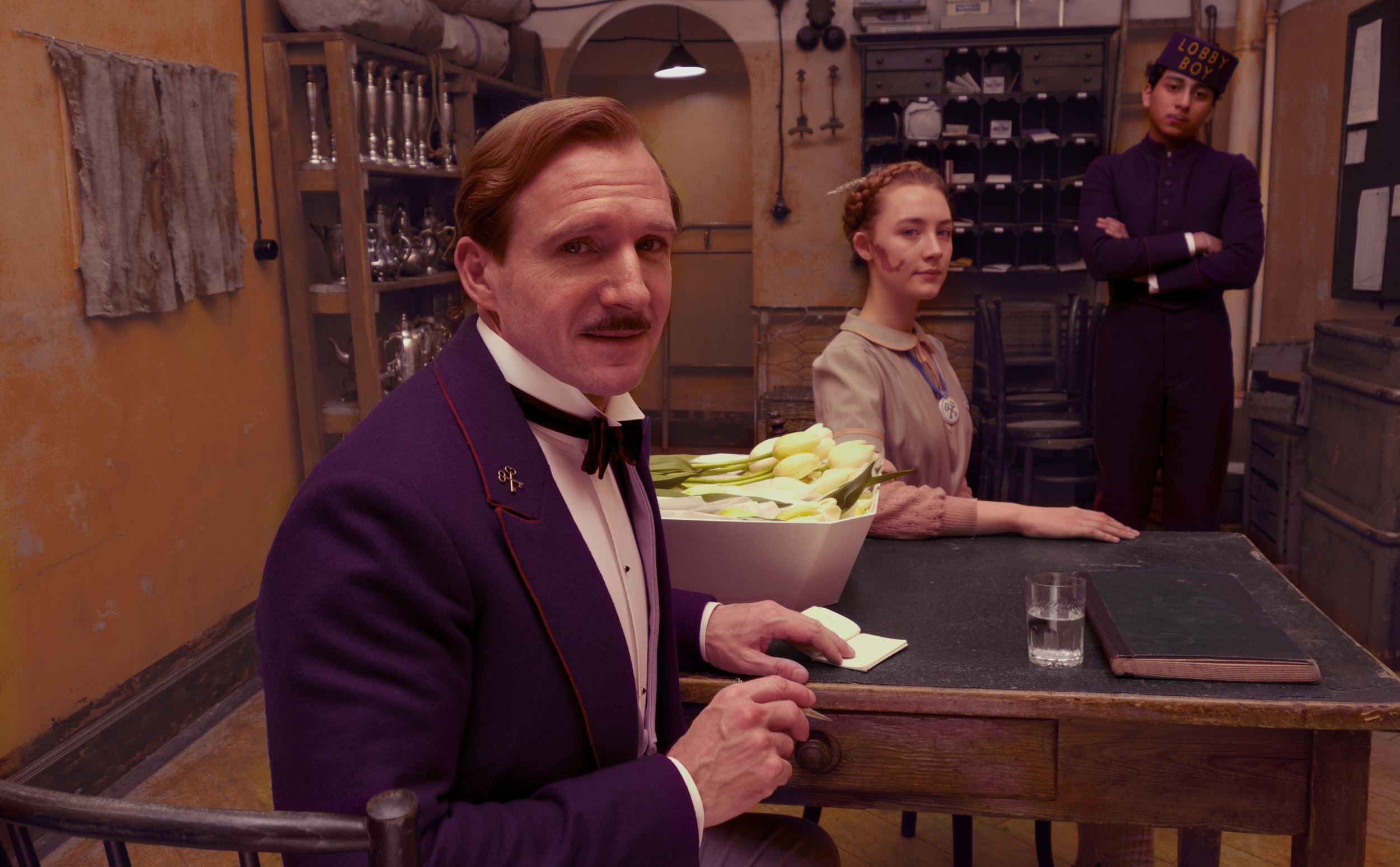Review: The Grand Budapest Hotel
To be frank, I think his world had vanished long before he ever entered it - but, I will say he certainly sustained the illusion with a marvelous grace.
Wes Anderson is one of the most honest filmmakers working today.
This may appear to be an odd compliment for an artist whose films well deserve the frequent comparisons to storybooks and dollhouses. Often we equate honesty with content that attempts to hold up a mirror to life and technique that co-opts the rough aesthetics of documentaries. Yet Anderson’s films, The Grand Budapest Hotel chief amongst them, not only acknowledge film's distance from reality, but embrace it. He trusts that his audience does not require the pretence that we are watching a genuine action up on the screen – rather that we need only the idea itself.
Late in Grand Budapest, a bravado sequence climaxes with a man losing his fingers. There is little viscera – no close-ups of the violence, no gushing blood nor sound design luxuriating on crushing bones – just a stationary wide shot punctuated by a slamming door. The audience in my theatre still gasped. Sometimes Anderson deploys detached composition to comic effect: in his wide shots, actions that would envelop a sequence in another film, such as man being pursued by a regiment of soldiers or a multi-story shootout, are rendered brief and ridiculous. Yet in Grand Budapest he reminds us that matter-of-factness also has the capacity to shock or wound. Ideas, whether of severed fingers or a wasted life, are potent in themselves; our imaginations can conjure the rest.
Anderson’s commitment to mannerism feels all the more radical set against a sea of contemporaries that embrace the trappings of verisimilitude even for tales of clashing robots or men in spandex. Where others strain for immersion through shaky-cam, a drab design and lines written to be mumbled rather than enunciated, Anderson never pretends to do any more than give us a peek within his latest lovingly crafted tableau. And The Grand Budapest Hotel may be his finest piece of craftsmanship yet.
It is certainly his team’s most intricate work, structured like a babushka nesting doll in which layers of storytelling (from a reader to an author to a memory) are briskly shed to reveal the central friendship between the concierge Gustave H. (Ralph Fiennes) and lobby boy (Tony Revolori). Nostalgia for a vanished world permeates the film, making one crave the gentle and delectable pastels of the titular hotel in its golden age even as, wherever the madcap plotting leads, we sense them washing away. The film’s MacGuffin – a Durer-esque high Renaissance painting Boy with Apple – embodies this outmoded vision of European high-culture, coveted by Gustave H. for its beauty, by the wicked Dmitri (Adrien Brody) simply for its monetary value. And although the malevolent forces embodied by Brody and Willem Dafoe at their most grotesque may be made ridiculous individually, they are also but the crest of a wave that will irrevocably shatter this pre-war fantasy of Europe.
Fiennes is spectacular as the film's prim yet frequently flailing comic centre, a vain man it becomes all too easy to love – one hopes this experience adds him to Anderson’s vast repertory company. Saoirse Ronan and newcomer Revolori deserve high praise for not only keeping up with Fiennes, but also grounding the farce with a cocktail of youthful innocence and unexpected guile. Indeed, every role in Grand Budapest feels like a colourfully wrapped gift for an actor, however minute their screen time. Each player’s fleeting appearance delivers a laugh, a flourish and a suitably ridiculous costume. Occasionally the impression is of a tasting platter of talented actors; one wonders, “why don’t I see more of this Adrien Brody?”
A Wes Anderson film is a rare delight, valuing immersion through character, design and story over today’s cinematic shorthand. One is tempted to label the style an anachronism, a throwback like the bubble-gum pink hotel itself – but though Anderson’s work fetishises the past, he has never been beholden to it. The films speak in a language entirely their own. Indeed, they thrive on the point of difference - no doubt the magic would be dulled if it were practised week-in, week-out at the multiplex. He is not Community's Dan Harmon, notching laughs from ‘meta’ assaults on the fourth wall, nor Brecht endeavouring to ward us away from catharsis. Anderson’s technique ensures we never forget he is showing us a carefully constructed dollhouse; his triumph comes from nonetheless inviting us inside.
The Grand Budapest Hotel (2014)
Directed by Wes Anderson, Screenplay by Wes Anderson, Story by West Anderson and Hugo Guinness, Cinematography by Robert D. Yeoman, Production Design by Adam Stockhausen.
